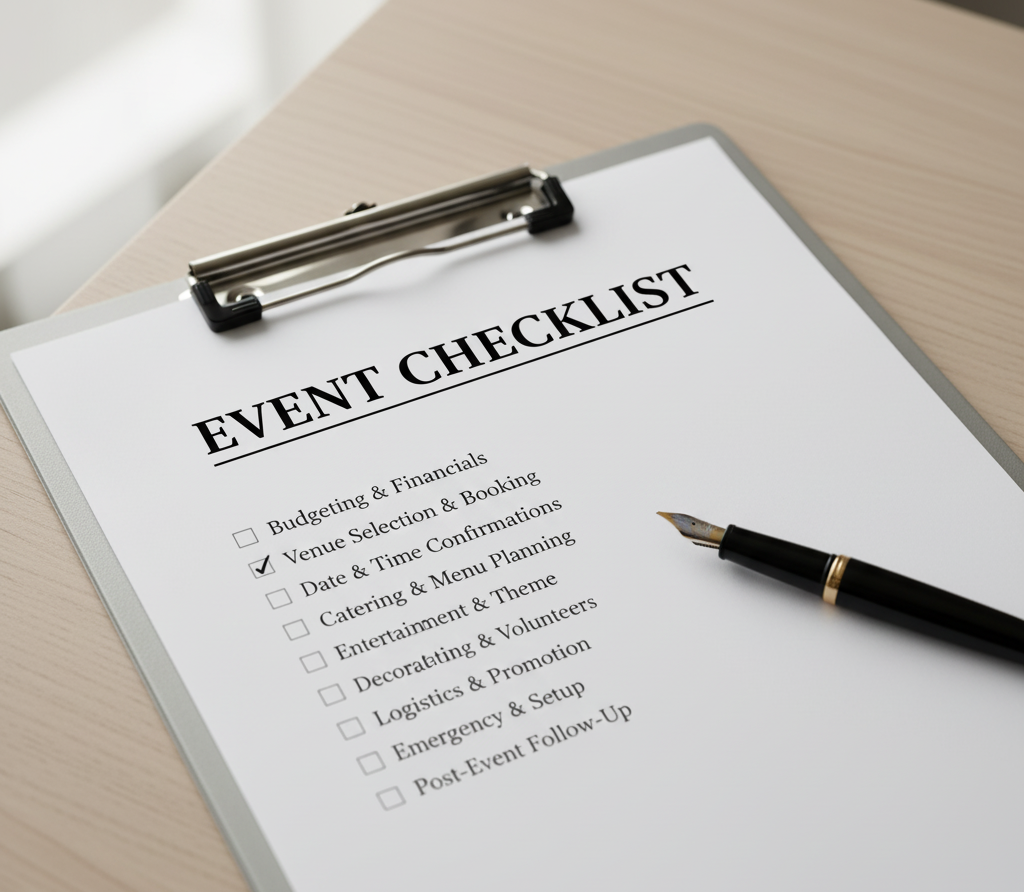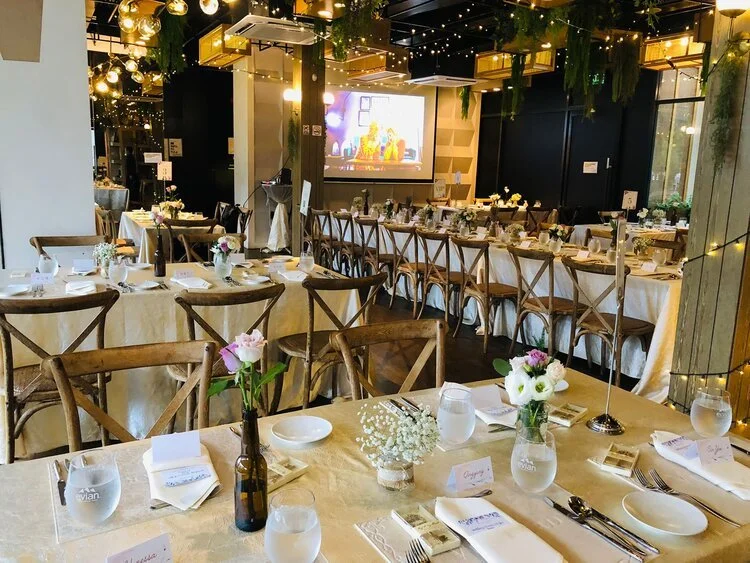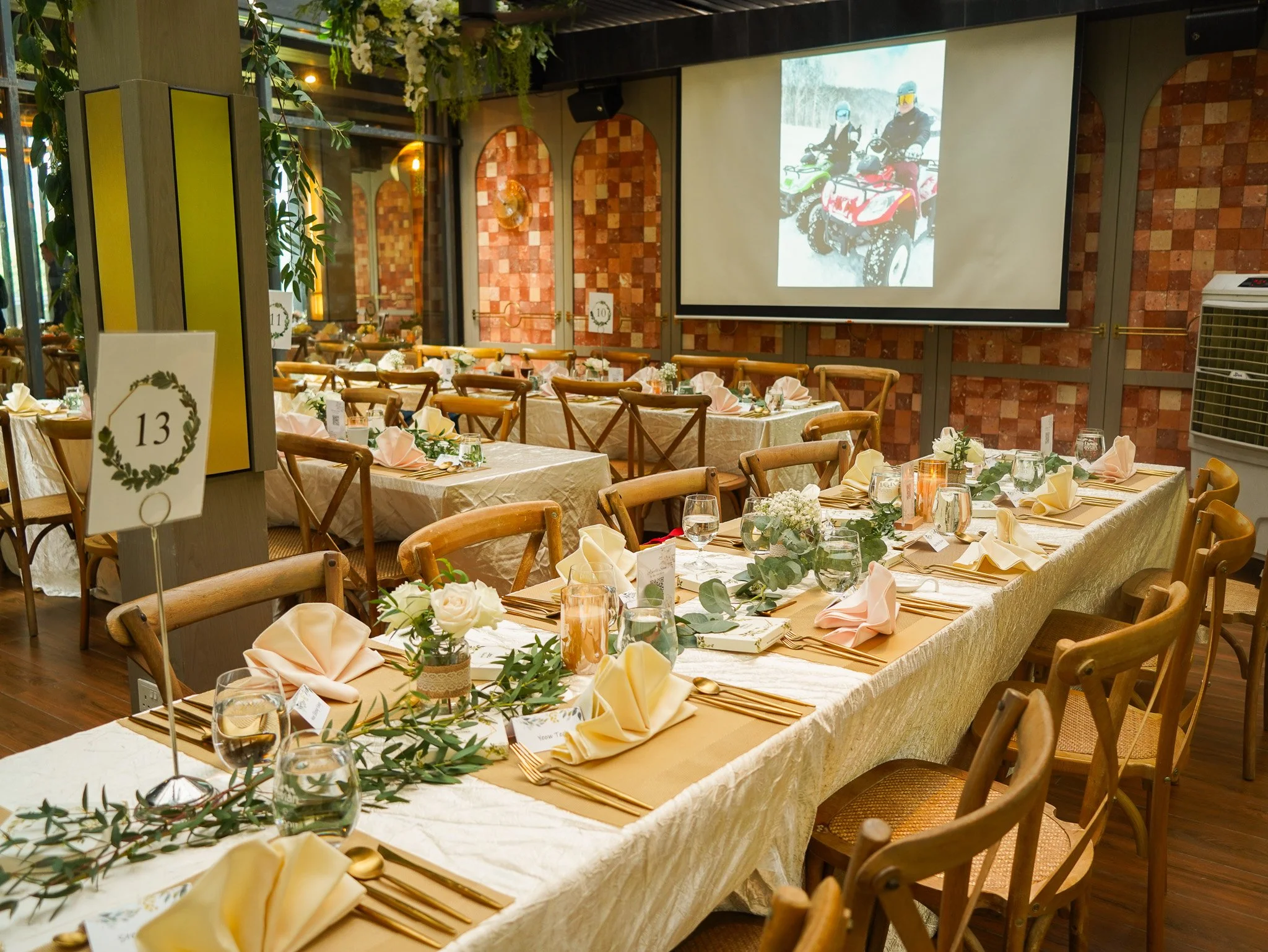Event Management Checklist for Events
Planning an event in Singapore can feel manageable at first, but without a structured event planning checklist, it quickly becomes overwhelming. Deposits for an event space, permits, catering, AV, vendor coordination, and guest logistics stack up fast. A clear checklist gives every event planner a roadmap, from pre-event tasks like booking around public holidays to on-site details such as check-in and setup.
It also covers post-event follow-ups to ensure a successful event doesn’t end when the lights go out. Planning an event for work or a private celebration? This guide to event management in Singapore will help you streamline processes, reduce stress, and deliver a memorable experience that leaves both hosts and guests satisfied.
Your Ultimate Event Management Checklist to Save Time and Reduce Stress When Planning in Singapore
This guide explained:
Why a structured event planning checklist is essential for reducing stress
How defining objectives, setting the date, and planning a budget early streamlines logistics
The benefits of selecting the right venue, like Vineyard at HortPark, for accessible
How assembling a dedicated planning team and assigning clear roles ensures every detail
Why thoughtful event design, branding, and pre-event promotion enhance guest experience
Event Management Checklist for Stress Free Singapore Events
Planning an event in Singapore involves more than finding a space and sending invites. Whether it’s a corporate event, networking event, or a casual social gathering, there are countless details that determine if the event runs smoothly. That’s why following the ultimate event planning checklist is crucial. A comprehensive checklist covers everything from budget planning and event objectives to on-site logistics, vendor coordination, and post-event follow-up.
Singapore offers endless options when it comes to event space, but without the right event checklist, even the most seasoned event planner risks missing critical steps. To make your event successful, reduce last-minute stress, and create a memorable experience for attendees, this guide breaks down the essential event planning process into practical steps you can follow.
Why You Need an Event Planning Checklist?
Every successful corporate or business gathering starts with meticulous preparation. A checklist is crucial because it ensures that no detail is overlooked. Whether you’re planning a corporate event, corporate seminar, or a networking event across Singapore, the planning process requires clear milestones.
Without structure, even the best planning team can lose track of vendor coordination, AV requirements, or venue booking deadlines. A proper event planner checklist also helps streamline the workload, so the entire event is managed with precision and ease. More importantly, it provides the confidence that your event in Singapore will deliver a seamless event that leaves guests with a memorable and successful experience.
Step 1: Define Objectives on the Event Day
Before any bookings, define the event objectives. Are you planning a corporate event to build brand awareness, foster employee engagement, or strengthen client relationships? Clear objectives guide the entire event design and influence decisions such as the right venue, expected number of attendees, and event branding.
Outline goals for your next event
Determine what type of memorable experience you want for attendees
Align event objectives with business outcomes
Step 2: Set the Event Date
Choosing the right event date can make or break attendance. Singapore’s public holidays and peak seasons affect venue availability and costs. Always check the local calendar before confirming your date. An early venue booking not only secures the space but also gives your planning team more time to handle AV setups, event branding, and vendor coordination.
Key points to consider:
Avoid clashing with major public holidays
Book early to get the right venue at the best rate
Lock in the event date before sending invitations
Step 3: Budget Planning and Allocation
No ultimate event planning checklist is complete without budget planning. Even a flawless event relies on careful cost control. A comprehensive checklist covers:
Venue booking and setup
Catering based on event needs
AV and technical requirements
Event branding and promotional materials
On-site staff and check-in systems
Meticulous budget planning ensures that you won’t face last-minute surprises. It also helps event planners negotiate deals with vendors and allocate funds to create a memorable experience for attendees.
Step 4: Select the Perfect Event Location
Selecting the perfect venue across Singapore is one of the top event decisions. The right venue sets the tone, accommodates the expected number of attendees, and ensures that the event runs smoothly. When planning a business or corporate seminar, consider:
Location accessibility and transport options
Event space size and flexibility
In-house AV equipment and support
Food and beverage packages
Branding opportunities within the venue
A seasoned event planner knows that the right event location supports not only logistics but also creates a memorable and successful atmosphere.
Vineyard at HortPark
For those looking for an ideal event space, Vineyard at HortPark is highly recommended. Surrounded by lush greenery yet easily accessible, this restaurant offers both indoor and outdoor options, customizable menus, and a relaxing ambience that suits corporate events, social gatherings, and seminars alike. A seasoned event planner knows that the right event location supports not only logistics but also creates a memorable and successful atmosphere and Vineyard at HortPark delivers exactly that.
Email us at sales@createries.com
Contact us at +65 6411 4999 / +65 3125 1860
For venue viewing, visit us at: 33 Hyderabad Road, #02-02, HortPark, Singapore 119578
Step 5: Assemble the Planning Team
A smooth and successful event requires teamwork. Assign clear responsibilities to your planning team so every detail of the event planning process is covered. Key roles include:
Budget manager to oversee financials
Vendor coordinator for catering, décor, and AV
Event design lead for branding and atmosphere
On-site manager for check-in and logistical support
This division of roles ensures that the entire event is handled professionally and that the checklist is crucially followed without gaps.
Step 6: Event Design and Branding
Event design goes beyond décor. It’s about creating a memorable experience for attendees that reflects your brand values. Event branding should be visible across all touchpoints: invitations, check-in counters, signage, stage backdrops, and post-event communication.
When planning a corporate event, think about:
Consistent logos and colors across materials
Engaging AV presentations
Interactive elements that involve the audience
The goal is to make your next event not only seamless but also impactful, leaving a lasting impression.
Step 7: Vendor Coordination and AV Setup
Vendor coordination is at the heart of flawless execution. Your event checklist should include deadlines for:
Catering menu selection
AV system testing
Décor delivery and setup
On-site staffing requirements
Always run a final AV test before the event day to avoid technical issues. A seasoned event planner will include backup options in case of last-minute changes. Smooth vendor coordination guarantees that the event runs smoothly from start to finish.
Step 8: Pre-Event Promotion
Promotion is an essential event step to ensure attendance. Your event planner checklist should cover:
Sending invitations after confirming the event date
Sharing event branding on social media
Sending reminders one week before the event
For a corporate seminar or networking event, this stage is critical in reaching the expected number of attendees. Promotion also sets the tone for a seamless event experience.
Step 9: On-Site Management
On the event day, the focus shifts to execution. On-site management ensures every aspect flows without disruption. Include in your event planner checklist:
Check-in systems for smooth guest entry
AV technicians available throughout
Logistical support for vendors and staff
Monitoring event design and branding placement
Good on-site management allows the planning team to handle any last-minute changes while ensuring that attendees enjoy a seamless event.
Step 10: Post-Event Follow-Up
A successful corporate or networking event doesn’t end when guests leave. Post-event tasks are essential to measure success and prepare for the next event. Include in your event checklist:
Gathering feedback from attendees
Reviewing event objectives and outcomes
Settling final vendor payments
Preparing a post-event report for stakeholders
Post-event analysis helps ensure that your next event across Singapore is even smoother and more effective.
The Importance of Event Checklist
If you're planning a business meeting, corporate seminar, or large networking event, a comprehensive checklist is crucial. It keeps the entire event organized, ensures that the event planning process is efficient, and helps create a memorable experience for attendees. From selecting the right venue to managing AV, budget planning, and post-event tasks, following this structured approach guarantees a seamless event.
When event planners in Singapore plan like a pro using this event planner checklist. they reduce stress, avoid last-minute issues, and ensure that your event every contributes to a memorable and successful outcome.
















